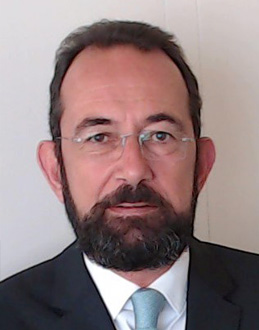Cumulating Caisse Nationale and Caisse Locale functions was the Monegasque feature chosen by Mr. Jean-Jacques Campana, Director of Caisses Sociales de Monaco, at our last interview: "It provides a good view of the problems at field level and enables fitting proposals to be made". Responsibility for the Caisses is enormous: 51,000 employees, 4,100 self-employed workers as well as 33,000 retirees and 23,000 eligible parties have to be managed. Developing the work resources and methods is thus essential.
Can you remind us of your 2016-2017 goals?
Our goal was to continue the industrialisation of our production tools, to improve the service provided to insured parties. That has brought about the dematerialization of interactions with health professionals and the automation of accounting procedures, in addition to setting up numerous teleservices.
Do Caisses Sociales perform the IT developments themselves?
Yes. Our IT department is large (45 people) and we have developed our own business applications since the 1970s. We were precursors at the time, which gives longstanding – and useful - experience.
Can you give us some examples of teleservices?
Among the most recent, one concerning the employers of Domestic Worker: salary statements, creation and printing of payslips online, or contribution records consultation. All this progress is time-saving and increases productivity for the Caisses Sociales as well. Dematerialization serves a dual purpose. First of all, absorb the increase in activity volumes, especially in the field of disease, while maintaining the quality of processing and deadlines. Then, be closer to the expectations of the insured and members, who, beyond the simplification provided by the teleprocedures, also have additional services, such as the calculation of pay slips, or the transmission by the caisses of their account forms to their health insurance.
Initial contact with insured parties is always important…
We have also focused on reception, resulting in the modernisation of our website that now includes an English version with surfing adapted to any mobile support. Foreign language training for our staff, mainly in English and Italian, has also been introduced. Finally, our premises have been redesigned and modernised. This enabled us to obtain Monaco Welcome certification in early 2017.
And your projects for 2018?
We will focus on two development areas: continued industrialisation of medical service breakdown tools. Plus modernisation of contribution collection channels.
Regarding the first point, in late 2018 the transmission of electronic invoices for biological procedures performed at CHPG (Princess Grace Hospital) will be effective. The same will apply to Centre d’Imagerie Médicale de Monaco procedures. The next step is the development of an electronic care sheet for acts dispensed by paramedics. It should be noted that if the processing times of the 900,000 care sheets that we receive each year are generally less than 7 working days, teletransmission reduces the reimbursement time to 3 or 4 days.
Regarding the second point, the modernisation of contribution collection channels, remember that Caisses sociales de Monaco are responsible for collection of the risk contributions it manages, as well as the contributions required by:
- UNEDIC for unemployment insurance
- Office of Occupational Medicine
- Employee Claims Guarantee Fund
- Building Vacation Pay Fund
- Complementary Pension Fund for Domestic Workers.
The new teleprocedure implemented on 1 October 2017 allows employers to file a single salary declaration and payment of contributions for all these organizations, including unemployment insurance contributions and contributions to the CCPB.
Moreover, besides telepayment, which is the most convenient mode of payment, they have with the SEPA TIP an alternative payment method more modern than the cheque, which it is intended to replace.
This change also enables the Caisses Sociales to obtain, in advance, the elements necessary to manage the recovery of contributions for a future Monegasque Supplementary Pension Fund.
The establishment of this body will, however, depend on an agreement between the Monegasque and French social partners on the conditions under which the rights acquired from the AGIRC and ARRCO regimes would be transferred to it, as well as the intervention of the Monegasque authorities, to set the framework of this new regime.






